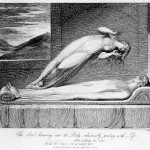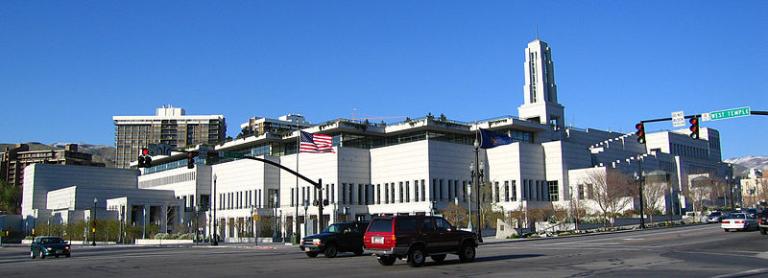
An article written by . . . well, written by me has just appeared in Meridian Magazine: “An Important Lesson in Getting the Most Out of Conference.” So far, the general consensus — based on a survey of me and my very kind and longsuffering wife — is that it may not be altogether the worst thing ever written on the topic. (If you disagree, please keep your disagreement to yourself. I’m rather fragile these days, what with Barbie failing to win the Academy Award for Best Picture and all.)
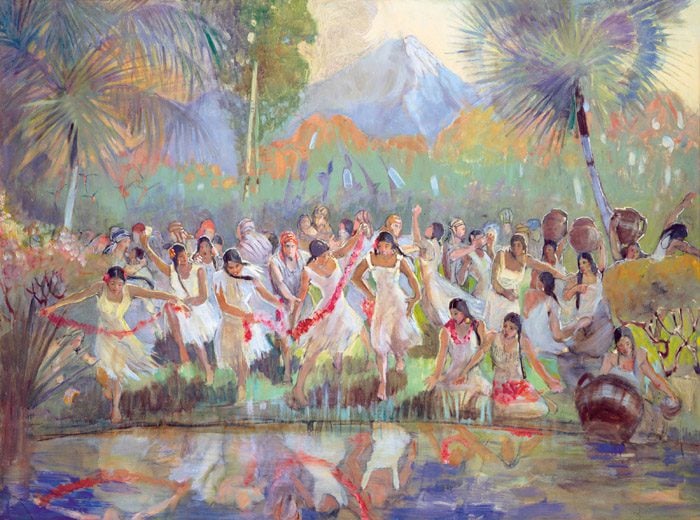
These articles appeared today on the website of the Interpreter Foundation:
“The Plagiary of the Daughters of the Lamanites,” written by Alan Goff
Abstract: Repetition is a feature of all ancient Hebraic narrative. Modern readers may misunderstand this quality of biblical and Book of Mormon narrative. Biblical and Book of Mormon writers believed that history repeated, with what happened to the ancestors happening again to their posterity. Fawn Brodie and her acolytes misapprehend Book of Mormon narrative when—instead of at least provisionally granting that God might exist, can intervene in history, and tenaciously reenacts events from the past while the recorders of such repeated stories firmly believed in the historical reality of the narratives they recounted—they attribute such repeated stories to Joseph Smith’s imputed plagiaristic tendencies. The story of the kidnapping of the Lamanite daughters by the priests of Noah (Mosiah 20) is a recurrence of the story of the mass kidnapping of the daughters of Shiloh (Judges 21), but to attribute such similarity to plagiarism by Joseph Smith is a grand and flagrant misreading of Hebraic narrative, its persistent allusive qualities, and its repetitive historiography. Such narratives were widespread in Levantine and classical antiquity, and neither ancient historians nor modern scholars take the relationship among such analogous stories to be one of plagiarism when their antiquity is undisputed. At least one additional construal of the Book of Mormon story’s meaning needs to be explored and considered against the backdrop of Hebraic narrative.
“Interpreting Interpreter: Turns Out It’s Not Plagiarism,” written by Kyler Rasmussen
This post is a summary of the article “The Plagiary of the Daughters of the Lamanites” by Alan Goff in Volume 61 of Interpreter: A Journal of Latter-day Saint Faith and Scholarship. All of the Interpreting Interpreter articles may be seen at https://interpreterfoundation.org/category/summaries/. An introduction to the Interpreting Interpreter series is available at https://interpreterfoundation.org/interpreting-interpreter-on-abstracting-thought/.
The Takeaway: Goff argues that the story of King Noah’s priests stealing the daughters of the Lamanites is in keeping with the ancient literary practice of using and building on themes from earlier stories (i.e., the kidnapping of the daughters of Shiloh in Judges 21), and appears to align with an ancient understanding of the nature and purpose of historical narrative.
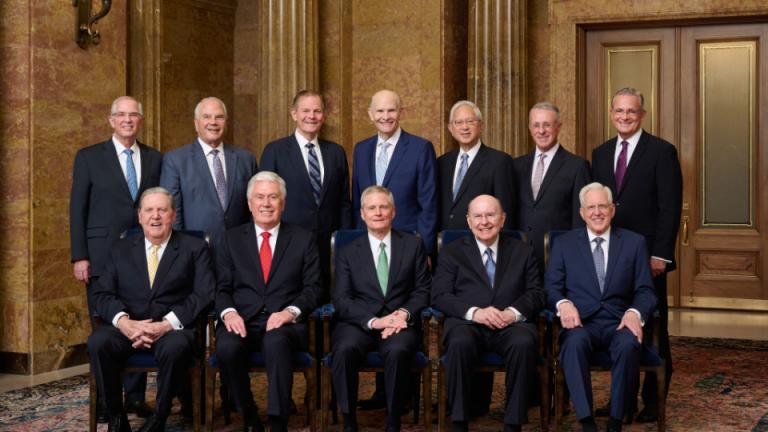
The public portion of the annual General Conference of the Church of Jesus Christ of Latter-day Saints opens tomorrow morning. In that connection, there is an issue that I wish to address:
Some critics of the Church, including some of its own members, have occasionally expressed disappointment (and sometimes even outrage) that today’s apostles bear managerial responsibilities and aren’t only charismatic ministers. But that seems always to have been the case.
I argued earlier here in this place that ἐπισκοπὴν, translated in the King James Bible at Acts 1:20 as “bishoprick” (that is, in modern English, as “bishopric”), could very reasonably be rendered as “stewardship.” The closely related Greek term episkopos means “overseer” or “superintendent,” so an episkopé is something like “an area of responsibility.” In the New International Version of the New Testament, which I give below, it is translated as “a place of leadership”:
15 In those days Peter stood up among the believers (a group numbering about a hundred and twenty) 16 and said, “Brothers and sisters, the Scripture had to be fulfilled in which the Holy Spirit spoke long ago through David concerning Judas, who served as guide for those who arrested Jesus. 17 He was one of our number and shared in our ministry.”
18 (With the payment he received for his wickedness, Judas bought a field; there he fell headlong, his body burst open and all his intestines spilled out. 19 Everyone in Jerusalem heard about this, so they called that field in their language Akeldama, that is, Field of Blood.)
20 “For,” said Peter, “it is written in the Book of Psalms:
“ ‘May his place be deserted;
let there be no one to dwell in it,’
and,
“ ‘May another take his place of leadership.’
21 Therefore it is necessary to choose one of the men who have been with us the whole time the Lord Jesus was living among us, 22 beginning from John’s baptism to the time when Jesus was taken up from us. For one of these must become a witness with us of his resurrection.”
23 So they nominated two men: Joseph called Barsabbas (also known as Justus) and Matthias. 24 Then they prayed, “Lord, you know everyone’s heart. Show us which of these two you have chosen 25 to take over this apostolic ministry, which Judas left to go where he belongs.” 26 Then they cast lots, and the lot fell to Matthias; so he was added to the eleven apostles.
As Acts 1:21-26 (quoted above) clearly shows, both Matthias and Joseph Barsabbas (or Justus) were qualified, spiritually and by personal experience, to become witnesses of Christ’s resurrection. But only one of them was to be chosen to assume responsibility for the ἐπισκοπὴν — the administrative or leadership position — that Judas had forfeited because of his transgression.
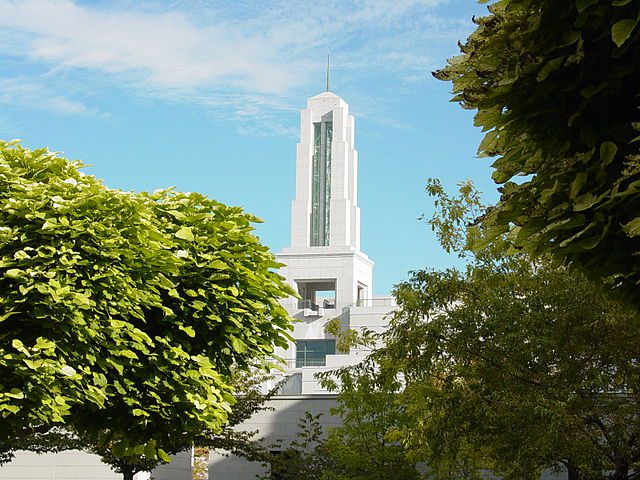
Here is some additional news from the world of religion, including an important piece written by the ever-valuable and always interesting Ryan Burge: “The Rise of the Non-Christian Evangelical: Some Jews, Muslims, Hindus, and Buddhists are Identifying as Evangelicals – Why?”
And I found this article, in Reason, very interesting as well: “As America Becomes More Secular, American Religion Will Need To Become More Urban: It’s in cities that greater absolute numbers of religious people can compensate for declining per capita rates of religious observance.”
Also: National Catholic Reporter: “Why is reporting on religion and politics so lousy?”
And Southern Baptist Convention Lost Over 1,200 Churches in 2022
And “Could New Hate Speech Law In Scotland Target Christians?”
And, although I know nothing about Katie Pruitt and don’t particularly care to know any more about her, this caught my notice. It’s consistent with my own impressions, and it indicates a challenge that we must seek to meet, within the bounds the Lord has set, as well as we are able:
“A recent survey from the Public Religion Research Institute found that 11% of Americans are former Catholics, a number roughly in line with other surveys. And across all the people PRRI surveyed, 47% of those who left their religion cited “negative teaching about or treatment of gay and lesbian people” in their decision.”


